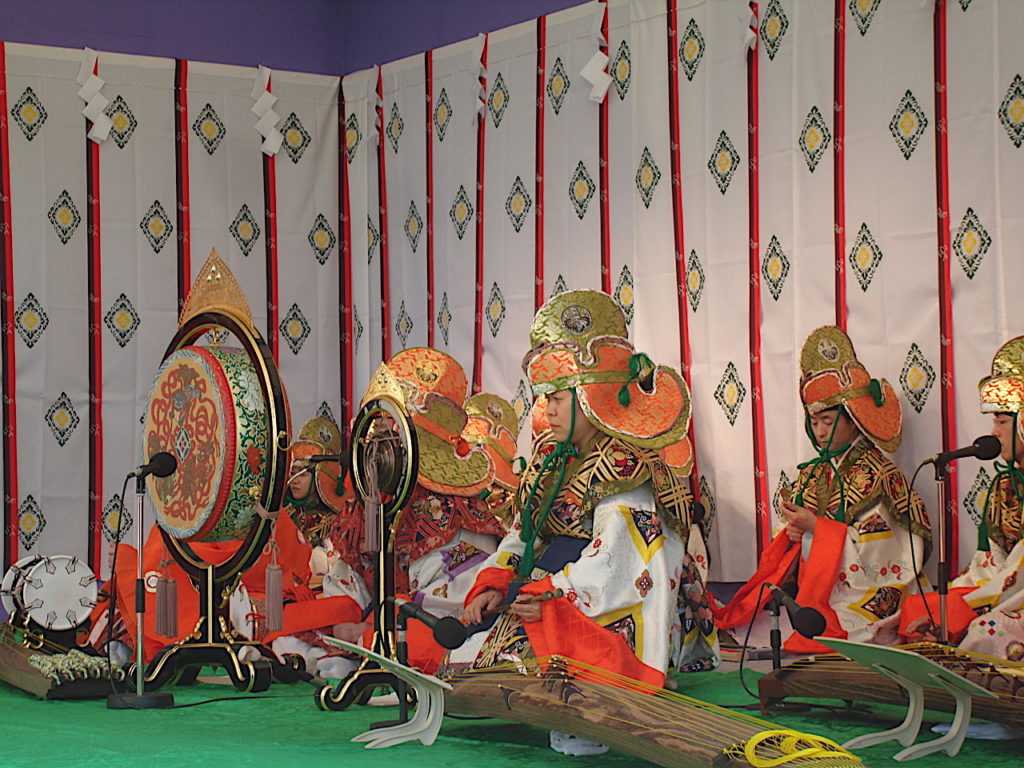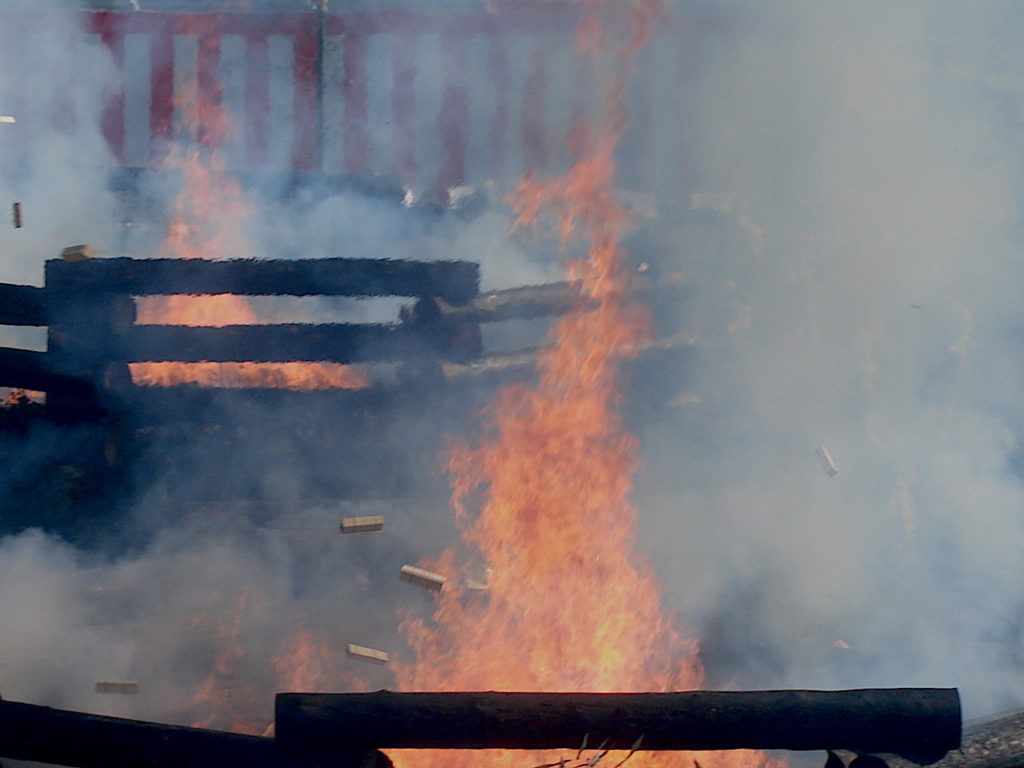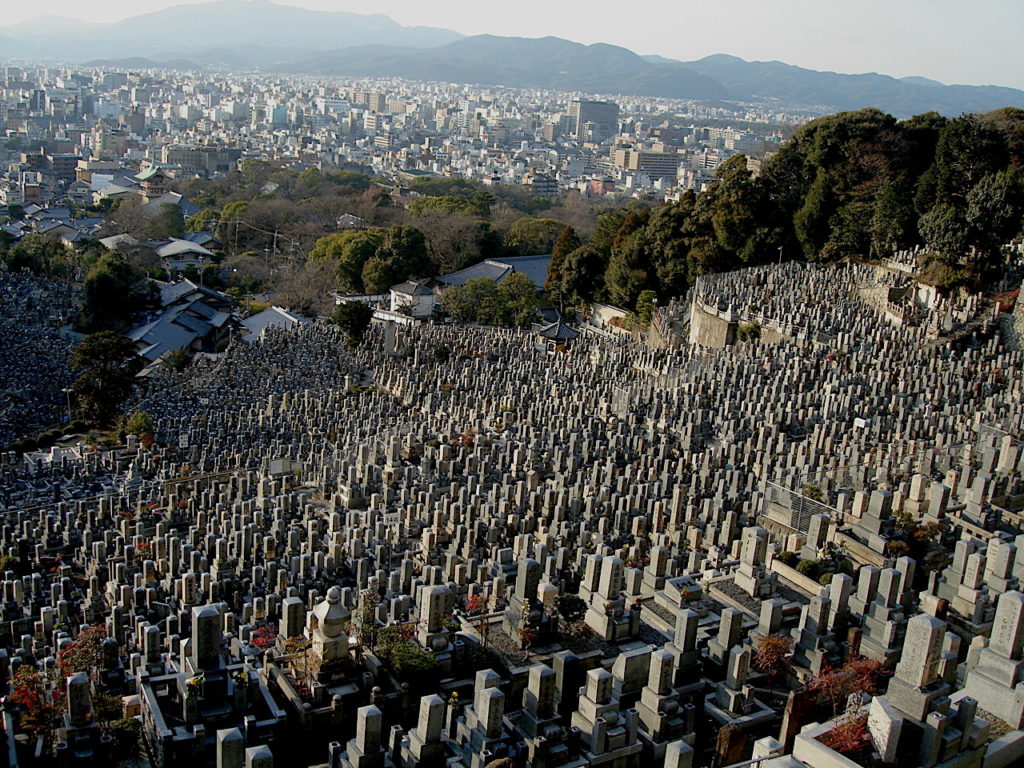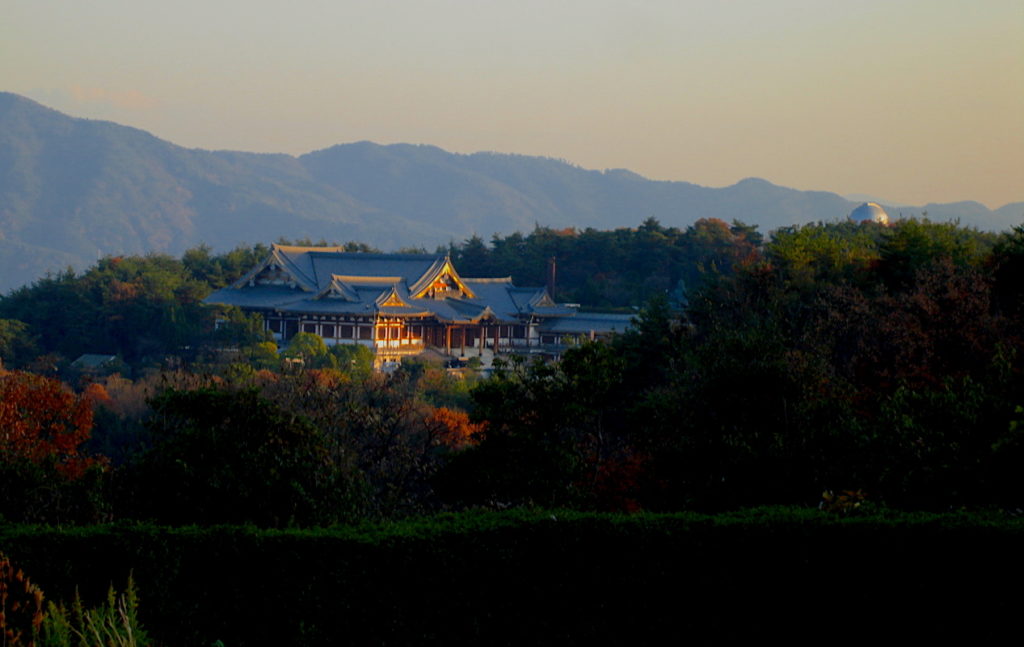
A small group of us met at Keage Station and began the walk up to Agon-shu’s huge Hoshi Matsuri event in the hills above Kiyomizu-dera. I’d been wanting to go for years, but always seemed to hear about it afterward, usually in that half-page ad in the Japan Times that the sect shells out big money for.
Along the way, we passed many Agon-shu acolytes in their yamabushi-like clothing, hands together in gassho. The ones at the top greeted us with a simple, “Welcome home.” There were thousands of people up here (half a million I later heard), funneled down a narrow dirt road gone grey and muddy from the weekend’s snow. At the far end of the bottleneck was an open space with a small stage and many tables selling food and the wooden gomaki tablets on which people would write their prayers.
We were all given rice balls and complimentary black tea. It was a beautiful day, pleasant to stand in the sunshine and look around at the bizarre carnival aspect of it all. I hadn’t expected this. Men and women dressed somewhat like leprechauns worked the crowd, greeting and smiling, while an old man and a group of young women, all dressed as Daikokuten, danced on stage to traditional Japanese flutes and strings, singing a song with religious lyrics. It was like a psychedelic church camp. But when I left to find a bathroom, I began to notice something else. Walking among the crowd was a firsthand encounter with hive mind. I noticed how damaged many of these people looked. Japanese society is built with the mortar of fitting in, and walking the streets of any city is like strolling around Disneyland. Things are just too pristine. Up here, we could see ‘other.’ A few of them had blank, lifeless eyes.

I’m not going to call this New Religion a cult. And it’s hardly a new idea that religion offers refuge for those who are most desperate for it. Which is great. But too many confuse the finger for the moon, and history is rife with examples of those who do happen to find the moon on their own, later having their eyes poked out with those same fingers. I realize I’m biased. My own spirituality is based on compassion, but I have very little for religion itself. I’m working on transcending that irony.
We moved down the hill to the center of the hive itself. A large square stadium had been built to house this event. People stood and leaned on the rails ringing the site. The earthen floor below looked like the kind of setting where bulls – or Christians – delight spectators with their violent deaths. Two massive bonfires were going, one in honor of the dead, the other for the living, both the size of a modest house. More acolytes in yamabushi garb scurried around the latter, tossing in those wooden tablets on which people had written their prayers. Others splashed ladles of water over the whole thing, creating more smoke to ensure the delivery of said prayers. Apparently smoke is the snail mail of the gods. A taiko group kept the beat, very tight. Their high level of skill attests to how much they must practice. We leaned into the rail, breathless partly by all the smoke, mostly by the spectacle. At one point the crowd was hushed and asked to place our hands together in gassho. From below, the Heart Sutra began in a low drone, quickly spreading throughout the crowd.

The head of the sect stood up and began to make esoteric mikkyo hand gestures toward the flame. His assistant stood beside him, holding a huge paper umbrella about two meters in diameter over his master, following his every movement. The effect was like watching a sahib on safari, aiming at human souls. When he was finished, we all bowed our heads in silent prayer. The only sounds to be heard were the occasional pop! of exploding wood, and the far off sound of a politician-to-be pandering from the valley below. Suddenly, the chanting resumed and more gomaki tablets were thrown into the flames. The wood itself was scrap, recycled. What of the prayers themselves?
We tore ourselves away from this and wandered over to the temple itself. Along the way, three of us stopped to make sense of a sign describing planetary-based fortune telling of some kind. We were only there for a few minutes, but when we looked up, we found that we were part of another massive queue. Somebody joked that in Japan, if you stand still long enough, a line is sure to develop. We eventually made it up to the main temple. The massive open courtyard then was covered by a few new structures. One had a stage for kagura, and another seemed to have a foundation of solid concrete. When I later tapped it with my foot, it resounded with a hollow sounding thud. (I’ll let you supply your own metaphor here.)
We descended, following a trail beside which an old marker had the word “Maruyama” carved in stone. Somehow we got turned round and became lost. Our karma no doubt for the scepticism up above. Finally we wound up having to hop a small wall into the towering Okudani Cemetery. The sheer number of graves was staggering, evenly laid rows leading down the slope toward the borrowed scenery of downtown. One of our group said, “I can’t tell you how many times this happens. We’re walking along, get lost in the forest, and wind up in the cemetery.” I said nothing. Again, some metaphors are just too obvious.


****************
For more by Edward J. Taylor, please check out this travel piece along Korea’s east coast, or this personal account of Japan’s hosting of the World Cup, or this article on visiting Cuba, or this lighthearted look at walking along the Kamogawa.
